If ever there were an example of a government not performing even the most basic of ethical duties to its citizens, it is that of Venezuela under Nicolás Maduro and the PSUV (Partido Socialista Unido de Venezuela or United Socialist Party of Venezuela). Despite the fact that Hugo Chavez came to power on the back of a moral argument that his “Bolivarian socialism” would lead to less income inequality, less poverty, less corruption, and greater social justice, Chavismo has in fact produced precisely the opposite, and in starker terms than could possibly have been imagined 20 years ago when Chavez came to power. My in-laws, forced to flee Fidel Castro’s revolution in Cuba, from whence they ended up in Venezuela, immediately saw the striking parallels between Castroism and Chavismo and emigrated to the United States shortly after Chavez came to power, noting that they had seen this story (socialism) before and that it did not end well. Wisdom gained through bitter experience.
While they foresaw a diminution of human rights, the destruction of democracy, and a growing police state, even they didn’t quite foresee the horrific state of affairs that exists in today’s Venezuela, once the wealthiest country in Latin America and a magnet for immigrants from around the world. Today the people are starving, and the vast majority is now in dire poverty. There is the threat of pandemic as the medical support network collapses and diseases that had long ago disappeared, such as malaria, measles, and diphtheria, reappear and cross Latin American borders along with Venezuelan refugees. And public order is progressively breaking down with a persistent lack of electricity, adding to the chaos. Over the coming year, the number of refugees resulting from Venezuela’s collapse is expected to outstrip even those from Syria.
Christians and other people of faith should not in any manner see Chavismo as reflecting God’s standards for wise and just governance. As Eric Farnsworth argued in Providence in February:
Whatever well-meaning initial impressions may have existed about Chavez and Maduro, the record is now abundantly clear that virtually the only poverty these leaders alleviated was their own and supporters of their regime, while looting the national patrimony and impoverishing their subjects. The faith community must therefore get over any lingering sympathy for Chavismo. It is not an instrument of justice, biblical or otherwise, and Venezuela’s problems do not stem from “US intervention.” Knowing this truth—and acting upon it—is critical for setting the long-suffering Venezuelan people truly free.
Some brief facts should illustrate the depth of Venezuela’s fall from its days as Latin America’s most developed society and wealthiest economy. Given Venezuela’s status as a founding member of OPEC and having the largest proven oil reserves in the world, the deterioration of its petroleum industry is one of the most striking illustrations of the Chavistas’ poor governance. When Hugo Chavez was elected in 1998, Venezuela’s oil production was at 3.5mbpd (million barrels per day), and the country had 110 oil rigs in operation. Production this last month was 732,000 barrels from 22 rigs, the lowest production since 1945, and is continuing to drop precipitously, despite massive investment from the Chinese and Russians over the past few years. By contrast, in the United States 499 rigs were in operation in Texas alone, and 107 each in Oklahoma and Louisiana. In total, the US had 1,075 rigs in operation producing well over 12mbpd. A starker contrast between state-run socialism and the benefits of free markets, property rights, and the resulting innovation cannot be imagined. (See Caracas Capital Markets Report for April 10, 2019)
In terms of public health, the statistics are similarly stark. Food is scarce. Venezuelans have lost significant amounts of weight in each of the past several years—an average of 19 pounds in 2016 and 24 pounds in 2017—and have continued to drop weight precipitously since. Venezuelans, who love humor and sarcasm in equal measure, have wryly labeled this “the Maduro diet.” Acute malnutrition is now one of the biggest causes of death, particularly among children. The lack of basic foodstuffs (as well as virtually all other basic consumer goods) is due to a combination of mind-boggling economic mismanagement and socialist ideology that set price controls and otherwise reduced private enterprises’ ability to make a profit, oversaw hugely oppressive government regulation, saw government takeover of hundreds of private businesses that were then run completely into the ground, and politicized the petroleum industry while firing thousands of employees of the state-run oil company, PDVSA, which had been one of the world’s best run oil companies, replacing them with those deemed politically loyal. After his takeover of PDVSA, Chavez used the income from petroleum sales as his personal piggy bank to fund his vast socialist spending programs while neglecting to reinvest PDVSA earnings to ensure future production. Food production, medical supply production, and pretty much all other manufacturing have collapsed. GDP has seen double-digit drops for each of the past several years, and the IMF estimates that inflation will hit 10 million percent this coming year.
The breakdown in public safety is likewise horrifying, with colectivos (gangs of armed civilian thugs, many of them recently released prisoners), sanctioned by the Maduro regime, roaming at will, terrorizing and extorting the people, and killing any caught protesting or otherwise opposing the regime. Colectivos, many times in alliance with parts of the Venezuelan military, also control much of what remains of Venezuela’s resource production. Violent crime is completely unchecked, surpassing the worst violence of Central America.
In addition, a multitude of malign external actors is present in Venezuela, from Cuban security personnel who help keep Maduro in power and who in many respects run Venezuela, to Iran and Hezbollah, to China and Russia. Each contributes in substantive ways to the maintenance of the Maduro and PSUV regime. The security threat of the further breakdown of order in Venezuela is substantial, as is the threat to US interests from the toxic brew of narco-trafficking, international terror networks, and the rogues’ gallery of external actors, all of whom use their positions in Venezuela to better position themselves to harm the United States and American interests.
One bright spot is that the extreme crisis has caused a spiritual awakening in the country as Venezuelans seek assistance from churches and synagogues and meaning in their current struggles. Roman Catholicism remains the dominant branch of Christianity (the most recent Pew Research numbers, from 2014, show 73 percent of Venezuelans identity as Roman Catholic, with a growing minority, 17 percent, as Protestant). The Venezuelan Catholic Church has long been a thorn in the side of Chavismo, objecting to what it views as a criminal, authoritarian regime using the language of progressivism in a disingenuous attempt to claim the moral high ground based upon an alleged concern for the poor. Early in his rule, Chavez blamed the Catholic bishops of plotting his overthrow, and a campaign of Catholic church bombings ensued, which, unsurprisingly, was never connected to Chavez with solid evidence.
In the current crisis, Roman Catholic clergy preach in favor of and openly attend rallies in support of Juan Guaidó, president of the opposition-led National Assembly (the only government institution that can claim any democratic legitimacy). Guaidó is asserting his role as constitutional interim president of Venezuela due to a provision of the Venezuelan constitution that declares that if the presidency is vacant (which status exists due to the widely recognized fraudulent nature of the May 2018 election upon which Maduro bases his claim to power), the president of the National Assembly is interim president with a mandate to oversee new presidential elections. There is a divergence, however, between the attitudes of the Vatican and the Venezuelan clergy with regards to the crisis.
The Vatican has attempted to mediate the conflict in the past several years, with nothing to show for it except growing mistrust from the Venezuelan clergy, public, and the democratic opposition. Many in these groups suspect that Pope Francis’ left-leaning sensibilities have made him sympathetic with Chavismo and kept him from supporting the opposition’s calls for transparent, free elections. The pope’s reticence to criticize Maduro’s massive human rights abuses (or those of the Castros in Cuba), vocally support Venezuelans’ fight for democracy, or call out the regime and its loyalists for threatening clergy and vandalizing churches have reinforced the concern that his ideological sympathies have compromised his moral authority and ability to contribute to a solution. Francis has, however, blamed the democratic opposition for failing to reach an agreement with Maduro.
The Vatican has described its attitude toward the Maduro regime as “positive neutrality,” a phrase that has not endeared itself to those Venezuelan Catholics fighting to rid themselves of Maduro. Echoing the democratic opposition, Venezuelan clergy argue the regime has used previous Vatican-mediated talks to buy time, marginalize and divide the opposition, better control Venezuelans, and weaken their ability to fight back. Venezuelan Cardinal Baltazar Porras Cardozo in February declared further Vatican mediation “inviable.”
The Trump administration, for its part, has declared support for the massive Venezuelan street protests against Maduro and recognizes Juan Guaidó as the constitutional interim president of Venezuela. It is leading a multinational effort to push Nicolás Maduro and his political allies out of their positions. Thus far, well over 50 mostly Western, democratic nations have followed Washington’s example and recognize Juan Guaidó as the legitimate interim president and declare Maduro to be a usurper of the Venezuelan presidency.
What occurs in Venezuela should be of intense interest to Americans, and particularly to American Christians due to the moral issues involved. Accordingly, over the coming weeks I plan to interview a series of key actors in the ongoing drama in Venezuela in order to highlight the work that these men and women are undertaking to address the worsening conditions and to set the stage for a reinstitution of democracy and a resurgence of economic, cultural, and spiritual flourishing in their country. It is my hope that these men and women of character and courage will both shed light on what is occurring and inspire by their examples.
Paul Coyer is a Providence contributing editor, a research professor at the Institute of World Politics in Washington, DC, and an associate professor at l’École spéciale militaire de Saint-Cyr, the French Army’s equivalent of West Point.
Photo Credit: Protest in Venezuela on February 18, 2014, via Wikimedia Commons.
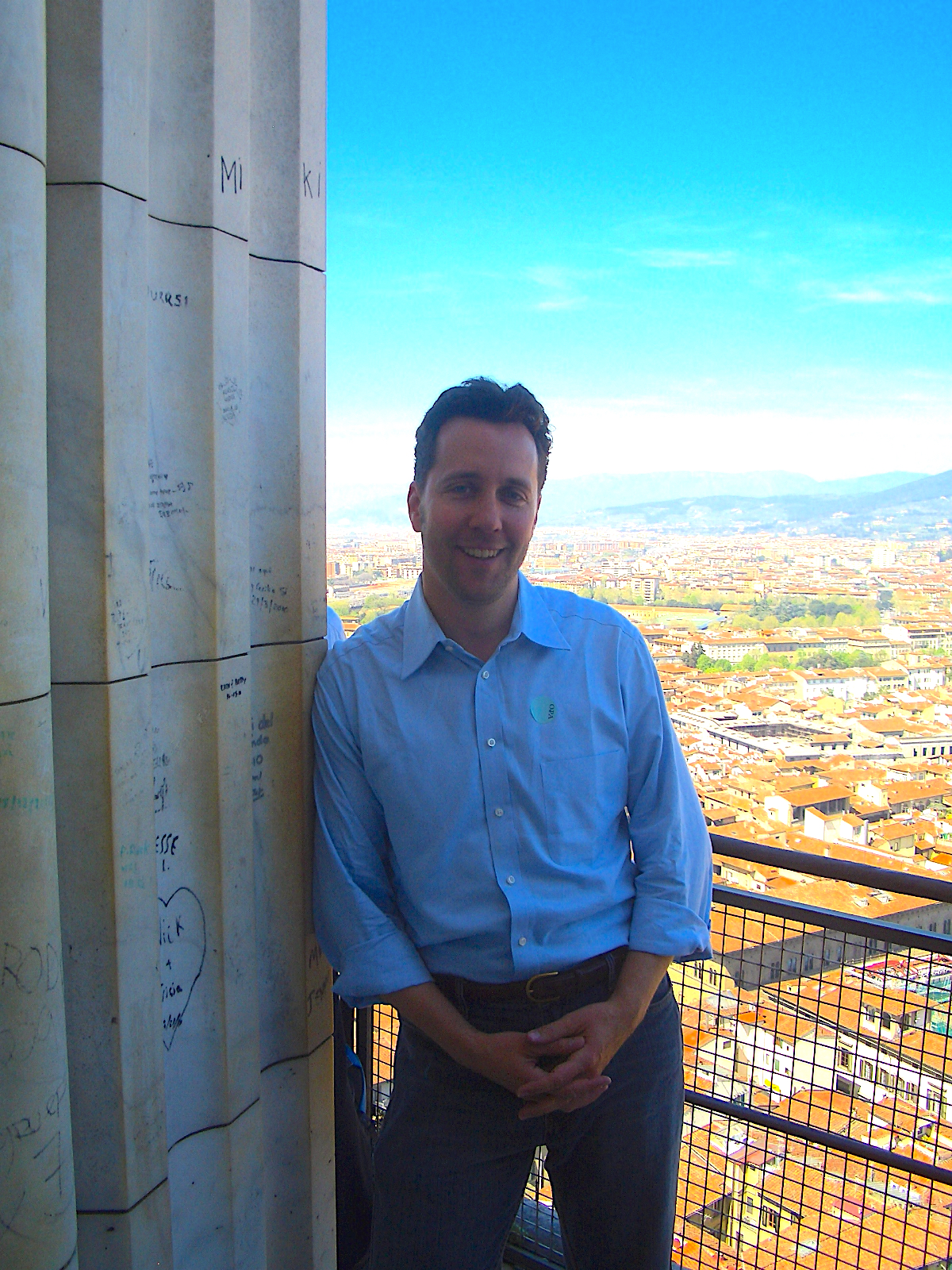
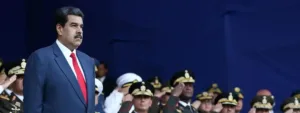
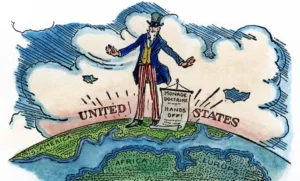
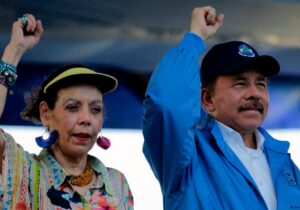
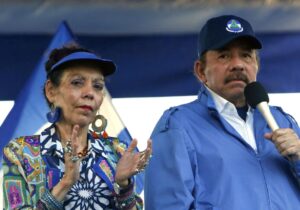
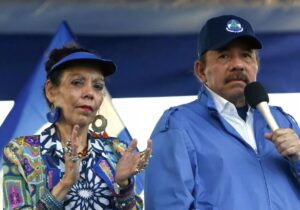

 Live in the DC area? Sign-up for Providence's in-person events list!
Live in the DC area? Sign-up for Providence's in-person events list!